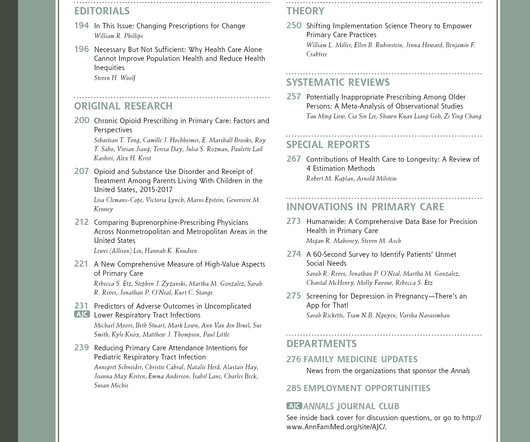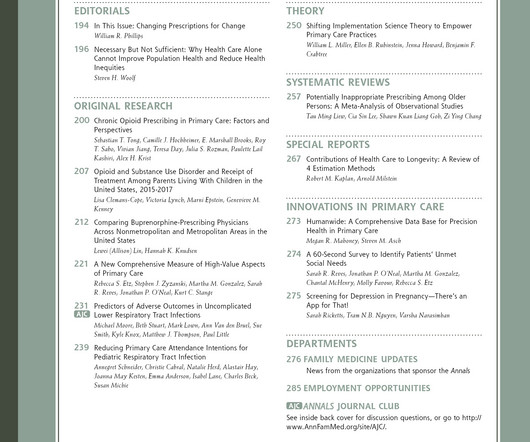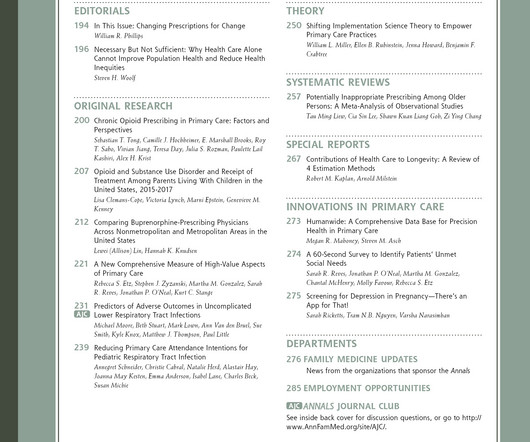Practice patterns of Ontario physicians working in 'boutique' medical clinics [Economic or policy analysis]
Annals of Family Medicine
NOVEMBER 20, 2024
Little is known about the characteristics of physicians and patients participating in boutique clinic practice models. This study offers insight into the practice patterns of boutique clinic primary care physicians, as well as the estimated public costs of this business model in Ontario. Study Design and Analysis.



















Let's personalize your content